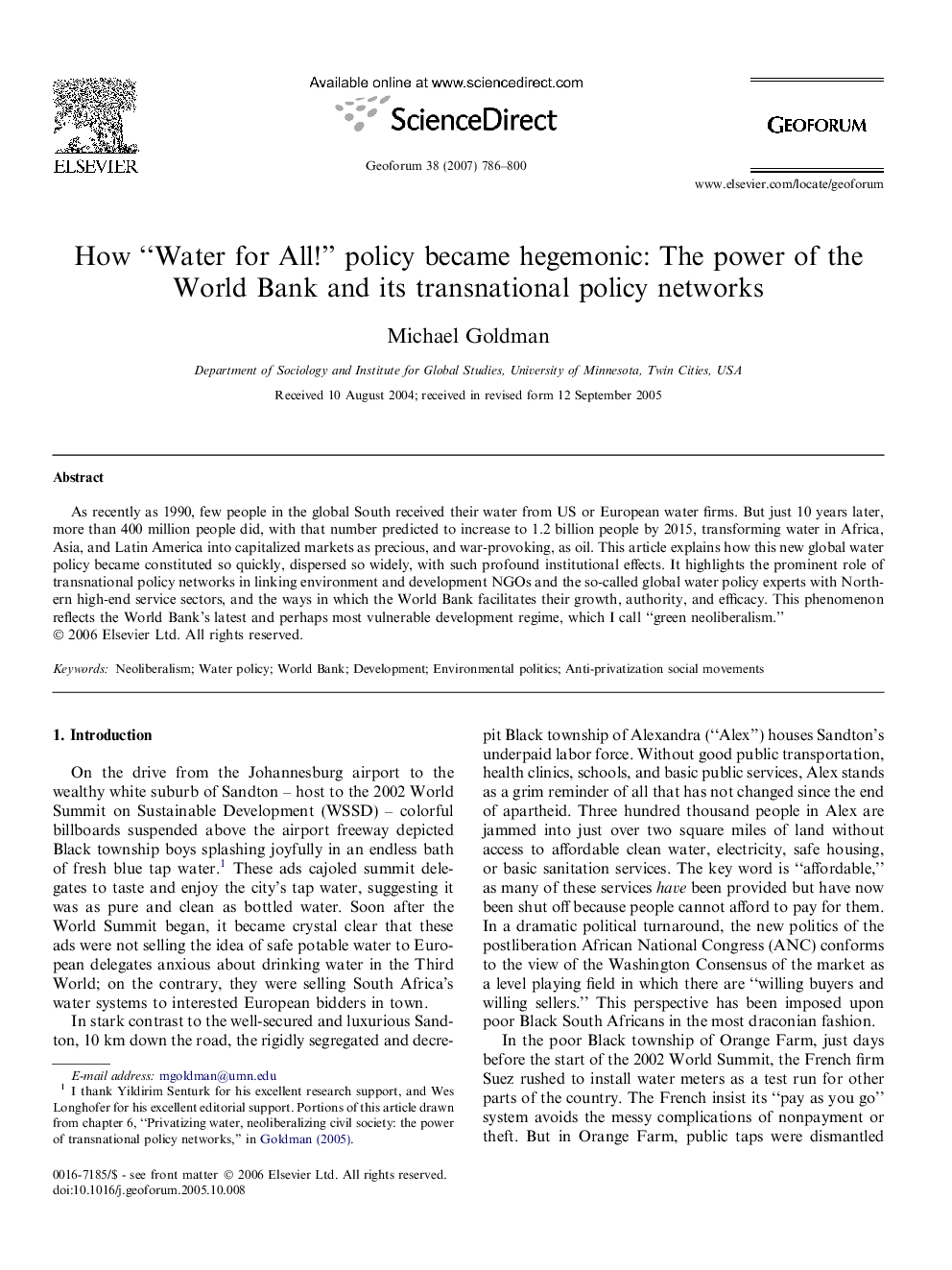| Article ID | Journal | Published Year | Pages | File Type |
|---|---|---|---|---|
| 5075002 | Geoforum | 2007 | 15 Pages |
As recently as 1990, few people in the global South received their water from US or European water firms. But just 10 years later, more than 400 million people did, with that number predicted to increase to 1.2 billion people by 2015, transforming water in Africa, Asia, and Latin America into capitalized markets as precious, and war-provoking, as oil. This article explains how this new global water policy became constituted so quickly, dispersed so widely, with such profound institutional effects. It highlights the prominent role of transnational policy networks in linking environment and development NGOs and the so-called global water policy experts with Northern high-end service sectors, and the ways in which the World Bank facilitates their growth, authority, and efficacy. This phenomenon reflects the World Bank's latest and perhaps most vulnerable development regime, which I call “green neoliberalism.”
